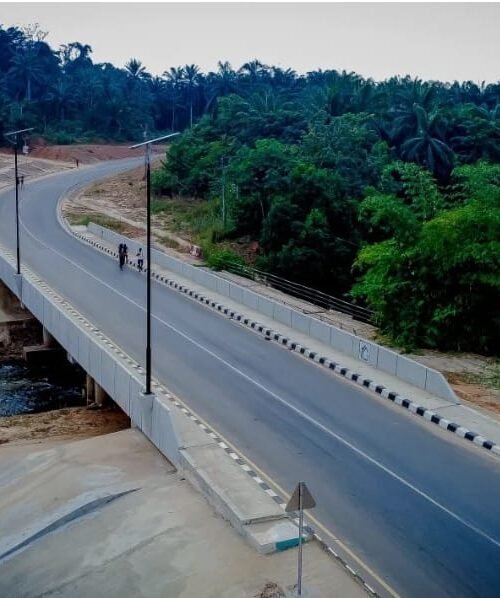The Daily Trinity: How Bread, Rice, and Fish Sustain Abia’s Heartbeat
By the banks of the Azumini River, in the shadow of Umuahia’s busy streets, and deep in Ohafia’s green valleys, three foods tell the story of a people who never give up. This is how bread, rice, and fish hold Abia together—one day at a time._
In the heart of Abia, a story of resilience unfolds through three staple foods: bread, rice, and fish. Meet Chika, the bread woman of Ubakala; Emeka, the rice farmer of Ohafia; and Ngozi, the fish smoker by the Azumini River. Despite struggles with flour prices, foreign rice competition, and a dwindling fish supply, these individuals find ways to thrive and support their community. Their stories have caught the attention of Governor Otti, who sees in them a microcosm of Abia’s potential. Intrigued by their resourcefulness and determination, Governor Otti is exploring ways to support their livelihoods, from initiatives to boost local rice production to sustainable fishing practices. Through their stories, Abia’s spirit is revealed: a people who, despite hardship, always manage to cook something good. With Governor Otti’s interest, their narratives may soon become a blueprint for a brighter, more prosperous future for Abia’s residents.
The Bread Woman of Ubakala
Every morning before the sun rises, Chika kneads dough in her small roadside shack. Her hands move fast, shaping fat loaves of “oga bread”—the kind that fills hungry stomachs for just 100 naira. By 6 a.m., construction workers in dusty boots line up, tearing off chunks to dip in hot tea. Schoolchildren stuff slices into backpacks. Okada riders balance loaves on handlebars, delivering them to wives who couldn’t leave their stalls.
But flour prices keep climbing. Last month, Chika started mixing cassava flour into her dough. “No one notices,” she laughs, sweat glinting on her forehead. “Hunger is the best spice.” Her best customer, Adaora, a single mother who sells dried fish, barters instead of paying cash. “One fish for two loaves,” Adaora says. “We keep each other alive.”
The Rice That Grows in Trouble
In Ohafia, where the hills are tattooed with rice paddies, Emeka’s family has grown the same hearty grains for generations. His ofada rice smells like earth after rain. But these days, cheap foreign rice floods the market. “People want what’s fast, not what’s good,” he grumbles.

Then one day, a group of women who smoke fish by the Azumini River came to him. “We’ll trade stockfish for your rice,” their leader, Nkechi, said. “Our children need proper food.” Now, every Friday, Emeka’s wife cooks jollof rice with golden stockfish for the village. “This rice has our soul in it,” he says. “We won’t let it die.”
The Fish That Survives
Ngozi has smoked fish the same way for 40 years: fresh catch from the river, salted, laid on bamboo racks, slow-cooked over firewood. Her smoked mackerel makes Abia’s soups rich and bold. But the Azumini River is sick. Dredgers scrape its bed for sand, muddying the water. Fish are fewer, smaller.
“They’re killing our river,” Ngozi says. So she did what she knows best: fed people. She gave free fish to the youth leader, who organized protests. She sent baskets to Chika’s bakery and Emeka’s farmhouse. Soon, market women marched with placards: “Save Our Soup!” Politicians took notice—promises were made. Ngozi shrugs. “We’ll see. But till then, we fight.”
The Feast That Fed a Thousand
At this year’s New Yam Festival, the air smelled of hope. Chika baked bread shaped like fish, “for luck.” Emeka donated 20 sacks of rice. Ngozi’s smoked catfish glistened in huge pots of jollof. A crowd gathered—teachers, mechanics, traders, even a councilman.
As the priest blessed the yams, a little girl tugged her mother’s skirt: “Mama, why is everyone smiling?” The mother wiped her hands on her wrapper. “Because today, we remember: no matter how hard life bites, Abia people always cook something good.”

Tomorrow’s Meal
That night, a construction worker named Tobe walked home with a loaf under his arm. His wife boiled Emeka’s rice in a dented pot. Ngozi’s fish, fried crisp, sat on a chipped plate. Their daughter licked her fingers. “Sweet?” Tobe asked. She grinned. “No, Papa. Strong.”
They ate in silence, the kind that isn’t empty, but full.
In Abia, food isn’t just food. It’s a language. Bread says, “Hold on.” Rice says, “We’re still here.” Fish says, “Tomorrow, we’ll try again.” And when you mix them all together? That’s Abia talking: loud, proud, and unbeatable.
Dr Chukwuemeka Ifegwu Eke writes from Yakubu Gowon University Nigeria.







